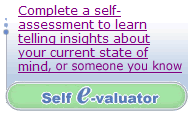UNIVERSITY OF WISCONSIN River Falls
Student Health And Counseling Services
Suicide Facts and Prevention
IF YOU ARE IN CRISIS CLICK HERE
Suicide Prevention
|
|
Community for Hope
www.communityforhope.org
We are community members united for the purpose of promoting and supporting mental wellness and building awareness about suicide prevention, intervention and response. Our group was established in 2001 in response to a growing number of teen suicides in Oshkosh and the clear need for action to stem this alarming trend. While our initial focus was on teen suicide, our current focus includes all age groups. We are a completely volunteer-based organization, and welcome and appreciate the help of any person or group who wishes to support our efforts.
Active Minds
www.activeminds.org
Active Minds is the nation's only peer-to-peer organization dedicated to the mental health of college students. The organization is a student-run mental health awareness, education, and advocacy organization that is headquartered in Washington, DC and exists on college campuses across the country. Active Minds serves as the young adult voice in mental health advocacy on more than fifty college campuses nationwide.
Suicide Facts and How to Help a Friend
Jed Foundation
http://www.jedfoundation.org/
- Sadness or anxiety
- Feeling of guilt, helplessness or hopelessness
- Trouble eating or sleeping
- Withdrawing from friends and/or social activities
- Loss of interest in hobbies, work, school, etc.
- Increased use of alcohol or drugs
- Anger
- Excessive irritability
- Excessive impulsivity
Specific signs of potential suicide include
- Talking openly about committing suicide
- Talking indirectly about "wanting out" or "ending it all"
- Taking unnecessary or life-threatening risks
- Giving away personal possessions
- Depression alone or in combination with aggressive behavior, substance abuse and/or anxiety is found in over half of all suicides.
Suicide can be also be triggered by a number of things including
- Stressful events, such as a failed exam or failure to get a job
- Crises in significant social or family relationships
- Interpersonal losses
- Changes in body chemistry
- High levels of anger or anxiety
How to help a friend
If you notice any of the above warning signs in a friend or loved one, you have reason to be concerned. There are ways that you can be helpful to a friend or loved one who is at risk.
- Be honest and express your concerns. For example, "You seemed really down lately. Is something bothering you?"
- Ask directly about thoughts of suicide. For example, "Have you thought of hurting yourself?" If suicidal thoughts are expressed, it is important to contact the university counseling center, student health center, local mental health association or a hospital.
- Listen and offer emotional support, understanding and patience.
- Convey the message that depression is real, common, and treatable.
- Offer to accompany your friend to see a counselor.
Resources
- National Mental Health Association - (800) 989-6642
- National Institute of Mental Health - (800) 421-4211
- American Foundation for Suicide Prevention - (888) 333-2377
- American Association for Suicidology - (202) 237-2280
Provided by National Mental Health Association and University of Wisconsin-Oshkosh Counseling Center












